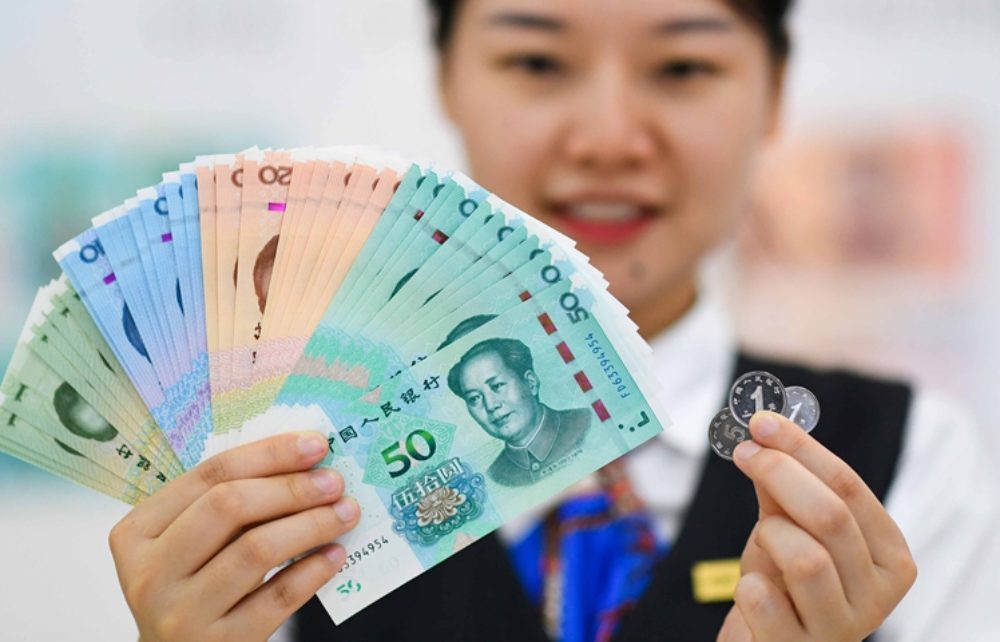The first institution accredited to operate the China Interbank Payment System (Cips) payment platform in Brazil, the Chinese-Brazilian Bank of Communications BBM (Bocom BBM) plans to begin in July clearing operations between Brazil and China without the use of the dollar.
Bocom BBM signed an agreement last week to join Cips, during a mission by Brazilian authorities to China. Brazil will be the first country in Latin America to have access to the Chinese system, which operates in an equivalent way to the western Swift, a system that connects thousands of financial institutions around the world.
“We signed the membership agreement. The system will be fully operational in the second half of the year. Our target is for it to be around July,” Alexandre Lowenkron, chief executive of Bocom BBM, told Reuters.
China’s central bank sets up yuan clearing arrangements in Brazil
The Central Bank of Brazil (BCB) and the Central Bank of China (People’s Bank of China or PBC) on January 31 signed a Memorandum of Understanding (MoU) to enhance cooperation in financial services related to the market and business in Renminbi (RMB), the official name of the Chinese currency, better known in the western world as the yuan.
This agreement allows commercial operations between the countries to dispense with exchange settlement – using the dollar – making directly from reais to yuan.
With this, it is expected that the costs of operations will be reduced, since, currently, a Brazilian importer needs, for example, to buy dollars to make payments to Chinese exporters, who in turn need to convert the dollars into the local currency.
New Brazilian President willing to expand relations with China
Bocom BBM also hopes that the conversion system between real and yuan will also open space for financing operations in Chinese currency and currency swaps to protect investments in both countries, without the use of the dollar.
“The offer of financial products, in addition to exchange settlement, is an important element. Mainly long-term hedge operations, either for Brazilians investing in China or Chinese people looking to Brazil,” says Lowenkron.
Banco Bocom BBM emerged from two financial institutions with histories in China and Brazil: Bank of Communications, one of the five largest commercial banks in the Asian country, and the Brazilian BBM.
Beijing expects Lula visit to “push China-Brazil economic relations to a new height”
In a note to CNN, the Central Bank of Brazil reported that, “by virtue of Chinese rules”, the People’s Bank of China itself elects an institution to operate in Brazil as an Offshore Clearing Bank, that is, an institution that will make the compensations of currencies directly.
The BCB assesses that the agreement brings benefits such as increasing the liquidity of the Chinese currency in Brazil, maintaining foreign exchange reserves in hard currency in the country, reducing intermediaries in international payments and bringing the local payment system closer to the Chinese one.
The monetary authority points out that “it is not a payment system for commercial transactions, but an instrument that allows transactions to be made in RMB – yuan- and converted into reais more quickly and less costly.”
Xi reminds Brazil President-elect of bilateral comprehensive strategic partnership
According to a report released in November last year by the People’s Bank of China (PBC, the Chinese central bank), there are 27 “clearing houses” of Chinese currency outside China in 25 countries, such as Canada, Germany, France, Qatar , Australia and even the United States. The first of these was started in Hong Kong in 2003.
The agreement has been seen as good news by experts consulted by CNN, as it strengthens Brazil-China relations and offers an alternative to the US currency and its fluctuations.
“It is very good news for both countries. For Brazil, it’s that old story of not putting all your eggs in one basket”, says Isabela Nogueira, professor at the Institute of Economics at UFRJ and coordinator of LabChina (Laboratory of Studies in Political Economy of China).
Brazil negotiating China’s participation in financing USD 100 billion agriculture plan
For China, the measure also applies to the geopolitical field. Reducing dependence on the dollar and increasing the circulation of the yuan is one of the main lines of action of the foreign policy of Xi Jinping´s government, which claims to want a “pluri-monetary world” – that is, with currency options for bilateral transactions in addition to the dollar.
“This is an attempt to circumvent the structural power of the dollar in the international monetary system, which gives the United States, in practice, the power to interfere in the radius of maneuver of other States by exploiting dependence on the currency, or eventually imposing sanctions”, explains Nogueira.
A new report by the Brazilian Central Bank (BC) showed that the Chinese yuan surpassed the euro and became the second most important currency in Brazilian international reserves. Until 2018, the yuan was absent from the country’s foreign reserves and now represents 5.37% of the total (end-2022 data), surpassing the 4.74% share of the euro, far from that of the dollar (80.42%).




